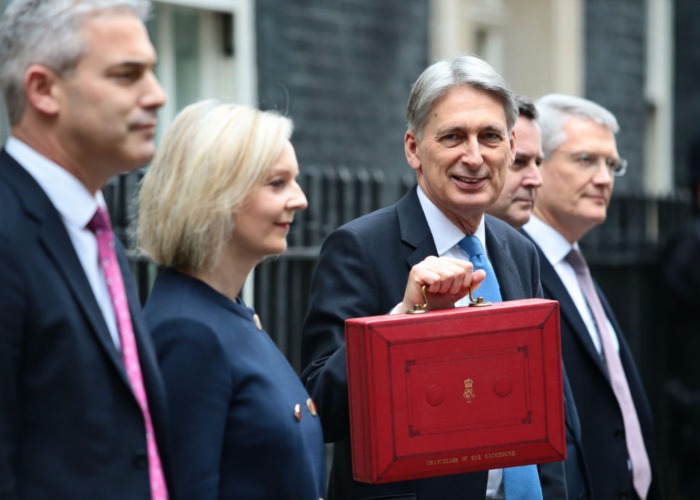Autumn Budget 2017: key points at a glance

Here are the 2017 Autumn Budget's key points at a glance.
The Chancellor of the Exchequer, Philip Hammond, has delivered his 2017 Autumn Budget. Here are the key points you need to know about.
Housing
The Government is abolishing Stamp Duty on purchases for first-time buyers of up to £300,000. For people in London and other expensive areas it’ll be the first £300,000 on properties costing up to £500,000.
Local authorities will be given power to charge a 100% Council Tax premium on empty properties.
Housebuilding
There will be £44 billion to boost homebuilding to 300,000 homes a year by the mid-2020s.
There will be an urgent review to explore the gaps between the amount of planning permission granted to developers and the number of homes built. This will be finished in time for the Spring Statement. One option on land not being built on will be to take it back via compulsory purchase.
Tax avoidance
There will be a further package of tax avoidance measures worth £4.8 billion by 2022/2023.
As of April 2019, Income Tax royalties will be imposed on UK sales to low tax jurisdictions, raising £200 million a year.
Online businesses will be jointly responsible for sellers using their sites paying the right amount of VAT.
Small businesses
The VAT threshold for small businesses will not be reduced so will remain at £85,000 for the next two years.
Business rate relief will switch from using the RPI measure of inflation to CPI to April 2018, estimated to be worth £2.3 billion to business over the next five years
The so-called 'staircase tax' will extend a £1,000 discount for pubs with a rateable value of less than £100,000 for another year to March 2019.
Brexit
An extra £3 billion will be set aside for Brexit.
Duties
Tobacco Duty to increase by 2% plus RPI inflation. There’ll be an extra 1% on rolling tobacco.
Duty on high-strength alcohol will rise in line with new legislation.
However, duty on beer, wine and spirits has been frozen.
There will be no fuel duty rise for petrol and diesel.
There will be a freeze on short-haul passenger duty but an increase on premium-class tickets.
In April 2018, Vehicle Excise Duty on diesel cars which don’t meet environmental standards will go up by one band. However, it won’t apply to van owners.
The existing diesel supplement in company car tax to rise by 1%.
Revenue of £220 million will go to a Clean Air Fund.
Income Tax Personal Allowance
The tax-free Personal Allowance on Income Tax will increase to £11,850 from April 2018.
The higher-rate (40%) threshold will increase to £46,350 from April 2018.
NHS
A total of £6.3 billion has been pledged to the NHS, including £3.5 billion in capital and £2.8 billion to "improve performance"
There will additional funding for NHS staff on the Agenda for Change programme.
Economy
Growth forecast for 2017 downgraded from 2% to 1.5%, rising to 1.6% in 2021-22.
Another 600,000 people are forecast to be in work by 2020.
Debt will peak at 86.5% of GDP this year, followed by 86.1%, 83.1%, 79.3%, ending up at 79.1% in 2022-2023.
Annual borrowing is sitting at £49.9 billion this year, £8.4 billion lower than at the Spring Budget. Borrowing will fall each year from £39.5 billion in 2018-19 to £25.6 by 2022-2023.
Education
There will be a £40 million teacher training fund for underperforming schools in England.
The Government will invest £406 million in maths and technical education.
T-Levels will be introduced with £20 million for further education colleges to support them.
Secondary schools and sixth-form colleges will get £600 for each new pupil taking taking maths or further maths at A-level at an expected cost of £200 million a year.
National Living Wage
The National Living Wage is rising to £7.83 an hour in April, giving lower-paid workers a £600 annual pay increase.
New 26-30 railcard
As expected, a 26-30 railcard will be introduced. Full details will be released in the Spring.
Driverless vehicles
There will be £400 million put into charging infrastructure and £40 million for research and development of charging. People who charge their vehicle at work won’t get a benefit in kind charge at work. There’ll be an extra £100 million in Plug-in Car grant too.
Environment
A single-use plastic tax will be investigated.
Comments
Be the first to comment
Do you want to comment on this article? You need to be signed in for this feature